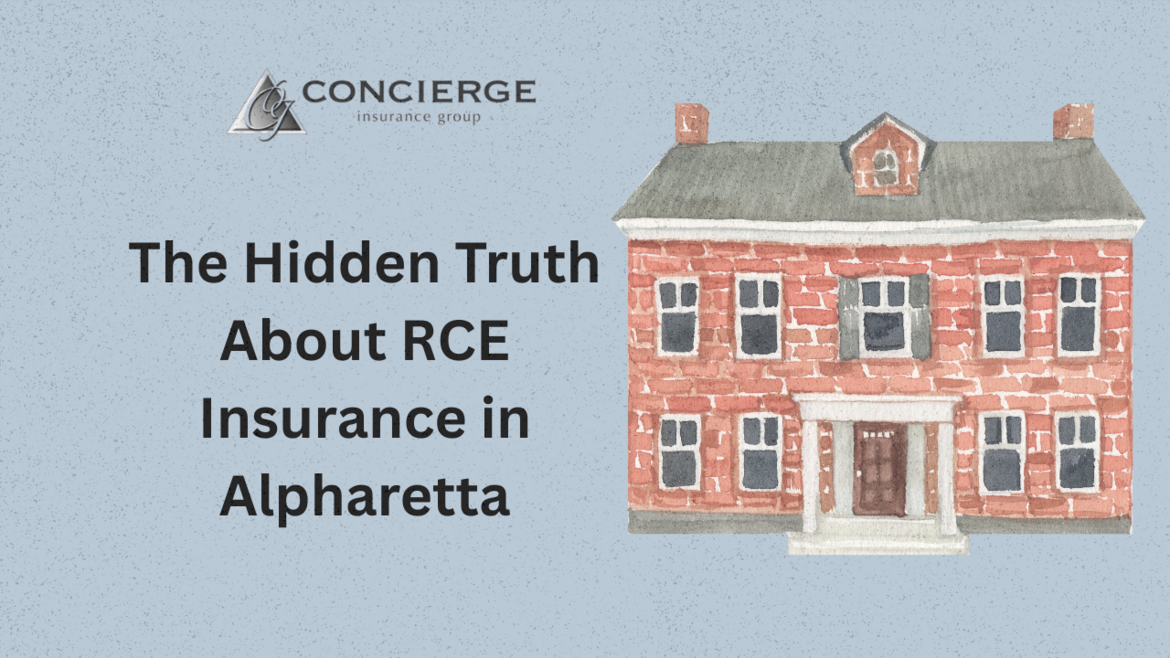
How much would it cost to rebuild a luxury home in Alpharetta from scratch?
And why are most Georgia homeowners unaware that their insurance coverage may fall hundreds of thousands short—due to flawed software estimates?
This article breaks down the risks behind Replacement Cost Estimates (RCE), exposes how standard insurance practices leave high-value homes underinsured, and outlines the critical variables affecting coverage accuracy.
Topics covered include:
-
The real difference between market value and replacement cost
-
How rebuild cost software works—and where it fails
-
The impact of coinsurance clauses in Georgia
-
Local construction labor shortages and regulatory costs
-
Practical methods for validating and optimizing coverage
The Hidden Risk in High-Value Insurance Policies
Luxury homes across Alpharetta reflect wealth and architectural distinction. Yet, behind the polished exteriors lies an often-overlooked vulnerability: insurance policies based on outdated or incomplete rebuild cost estimates.
Most policies do not reflect the actual cost of reconstruction. Instead, insurers rely on Replacement Cost Estimates—calculated using software that can drastically misrepresent current labor and material expenses.
How Rebuild Cost Estimates Are Calculated—and Why They Fall Short
RCEs are determined using software like Marshall & Swift/Boeckh (MSB) and 360Value, which assess details like square footage, construction type, and finish quality. These tools are updated quarterly, yet many policies remain unchanged for years.
While the market value of a home includes location and land value, RCEs focus only on physical reconstruction. In 2010, rebuild costs in Alabama were $70/sq. ft.; by 2020, they reached $170. Georgia has followed a similar path, yet many homeowners are still covered at pre-2020 levels.
Custom Homes in Alpharetta: A Perfect Storm for Underinsurance
Software struggles to evaluate high-end finishes common in Alpharetta’s homes—such as custom cabinetry, imported stone, or integrated smart systems. These features often push rebuild costs over $500/sq. ft., especially in communities like Hawthorn.
Estimates generated by insurance platforms may fall far short, particularly for homes built by custom builders like KJ Luxury Homes. Standardized calculations rarely capture the true complexity of luxury design and materials.
Coinsurance Clauses: Financial Exposure Hidden in the Fine Print
Georgia property insurance often includes coinsurance provisions. These clauses require homeowners to insure at least 80% of the property's replacement cost. Falling short leads to a reduced payout—even when the claim is unrelated to full loss.
For example, if a home’s rebuild cost is $1M and coverage is only $600K, a $100K claim could result in a payout of just $75K. The remaining $25K becomes an out-of-pocket loss due to a coinsurance penalty.
Construction Labor Shortages: A Silent Cost Driver
Georgia’s construction sector currently has 54 workers for every 100 open positions. Skilled trades, project managers, and specialty contractors are in short supply, pushing labor costs higher each year.
Since 2015, mechanical and electrical trade wages have grown over 4% annually. In post-disaster rebuild scenarios, these costs can spike an additional 25–40%—far beyond standard policy allowances.
Alpharetta’s Permit Maze: The Hidden Costs of Rebuilding
Local permit structures add substantial costs often excluded from insurer rebuild calculations. Alpharetta charges:
-
$5.50 per $1,000 of construction cost (base fee)
-
$2.75 per $1,000 for plan review
-
Additional fees for engineering permits, tree protection, and inspections
Rebuilding a $2M home could generate over $16,500 in fees—costs that standard RCE software rarely anticipates.
Appraisal Limitations in Georgia Insurance Law
When coverage disputes arise, Georgia law limits the scope of appraisal. This process only addresses disagreements over value—not broader issues of what is or isn’t covered.
In Lam v. Allstate, the Georgia Court of Appeals ruled that a disagreement over roof damage extent was not eligible for appraisal, as it involved a “coverage” issue. This narrow interpretation restricts homeowners’ options for contesting insurer assessments.
Insurance Affordability and Rising Premiums in Georgia
Georgia homeowners spend an average of $2,345 per year on insurance—22% above the national average. The state ranks 42nd in affordability.
From 2022 to 2023, premiums increased 11%, and in high-risk areas, hikes reached 30%. At the same time, the Direct Incurred Loss Ratio hit 112%, indicating that insurers paid more in claims than they earned—prompting stricter underwriting and reduced flexibility in claim evaluations.
Technology and the Changing Landscape of Risk Assessment
Insurance companies now use drones, satellite imagery, and AI to assess properties remotely. These tools improve risk identification but also increase policy scrutiny.
Advanced platforms can detect high-end features that older systems missed, leading to higher calculated rebuild costs. In turn, these drive up required coverage—but without homeowner awareness, policies may remain underfunded despite the algorithmic increase in valuation.
Practical Approaches to Secure Adequate Coverage
To avoid shortfalls and disputes, homeowners are taking more proactive roles in managing insurance protection:
Annual Cost Reviews
Independent rebuild cost evaluations—especially those conducted by professionals familiar with Alpharetta’s luxury market—provide updated, accurate data that reflects actual conditions.
Detailed Documentation
Maintaining thorough records of architectural details, contractor invoices, and custom installations helps substantiate rebuild costs in the event of a claim.
Buffer Coverage
Carrying 10–15% above the estimated RCE allows for flexibility in volatile markets, labor surges, and post-catastrophe rebuild pricing.
Evolving State Regulations Offer Some Relief
Georgia lawmakers are beginning to address insurance transparency. Senate Bill 35 would extend cancellation notices from 30 to 60 days. Senate Bill 426, though focused on trucking, reflects a larger shift toward insurance reform—potentially influencing future homeowner policy structures.
Summary: Awareness Is the Foundation of Protection
Luxury homeowners in Alpharetta face unique challenges in securing accurate and sufficient insurance coverage. Algorithms, labor shortages, regulatory fees, and legal interpretations all impact what insurers will pay after a loss.
Understanding the mechanics of Replacement Cost Estimates, the consequences of coinsurance, and the limitations of appraisal clauses provides a foundation for smarter policy decisions.
While rebuild cost systems aim to model reality, they often fall short—especially for custom or high-end properties. Recognizing these blind spots is the key to avoiding coverage gaps and ensuring financial security in the event of disaster.

